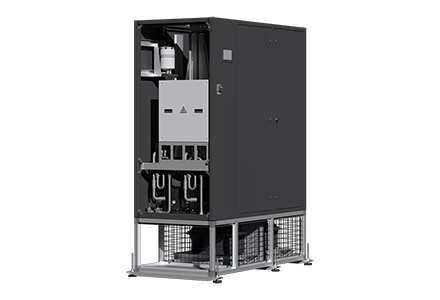Keeping the earth safe is a key goal in the HVAC and cooling sectors. With more demand for energy and stricter rules, makers are looking for smart ways to cut their impact on nature. Microchannel heat exchangers (MCHEs) lead this change, giving big eco-benefits without losing performance. For more on MCHE tech, go to Kaltra.
Less Use of Refrigerants
Lower Charges
One big plus of microchannel heat exchangers is that they need less refrigerant. The small size of microchannel coils means they use less space inside, so they work with much less refrigerant than old tube-and-fin types.
This cutback is key as the world seeks to stop using refrigerants that harm the climate. Using less refrigerant makes microchannel systems https://www.kaltra.com/microchannel-coils help cut the eco-impact of HVAC and cooling units.
Works with Low-GWP Refrigerants
Microchannel heat exchangers work well with low-GWP refrigerants, boosting their eco-friendliness. This helps makers meet the rules and cut greenhouse gases, making MCHEs a smart choice for green use.
Energy Efficiency
Strong Heat Transfer
The high efficiency of microchannel coils cuts down energy use in HVAC and cooling systems. They move heat fast and better, so they need less energy to stay at the right temps, which cuts costs and cuts carbon output.
Help with Energy Savings
Energy-saving systems with MCHEs cut down bills and help global eco-goals by lowering energy needs. This makes microchannel heat exchangers key for hitting energy-saving goals in homes, shops, and factories.
Light and Small Design
Material Use
The light and small design of microchannel heat exchangers cuts material use when they are made. Aluminum, the main material for MCHEs, is easy to recycle and needs less energy to make than metals like copper and steel.
This smart use of materials helps stop resource loss and makes for a circular economy, where materials are reused and recycled to cut waste.
Transport and Installation Perks
The small size and light weight of microchannel coils mean lower emissions for transport and easy setup. Fewer trips and less fuel needed during transport boost the eco-friendliness of these systems further.
Strong and Long Life
Corrosion Resistance
The all-aluminum build of microchannel heat exchangers gives strong resistance to corrosion, showing great long-term reliability even in tough conditions. This strength cuts down on replacements, lessening waste and the eco-impact of making new parts.
Less Need for Upkeep
Microchannel systems need less care than old designs because of their strong build and high efficiency. This means less cleaning chemicals and spare parts, adding to overall eco-friendliness.
Recycling and End-of-Life Benefits
Recyclability of Aluminum
Aluminum, found in microchannel coils, is fully recyclable and keeps its traits. Recycling aluminum needs way less energy than making it from raw stuff, lessening the carbon cost of making it.
Smart Disposal
When they reach the end of their use, microchannel heat exchangers can be recycled into new items, cutting waste and pushing for smart resource use. This fits with global moves to a circular economy and lessening the eco-impact of industry work.
Support for Green Building Goals
Help with LEED Points
Buildings with energy-saving HVAC systems using microchannel heat exchangers can earn points for LEED (Leadership in Energy and Environmental Design) marks. These marks go to buildings that meet high needs for energy saving, eco-friendliness, and impact on the earth.
Fit with Green Practices
By using MCHEs, building owners can stay true to green practices and show they care for the earth. This can make buildings more appealing to eco-minded renters and buyers.
Cutting Carbon Impact
Lower Emissions
The mix of less refrigerant use, high energy efficiency, and recyclability greatly cuts the carbon impact of systems that use microchannel coils. This makes them key tech in the battle vs. climate change.
Help for Global Goals
Microchannel heat exchangers back global plans like the Kigali move to the Montreal Pact, which seeks to cut the making and use of high-GWP refrigerants. By using MCHEs, makers and firms can play a part in reaching these eco-goals.
Conclusion
Microchannel heat exchangers are not just smart and strong but also a vital step in keeping the earth safe. Their less refrigerant use, energy efficiency, recyclability, and long life make them a top pick for green HVAC and cooling systems.
For businesses wanting to cut their impact on the earth, Kaltra has advanced microchannel coil options that fit modern green needs. By using MCHE tech, firms can help create a better future while enjoying great performance and cost cuts.

